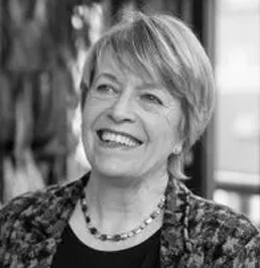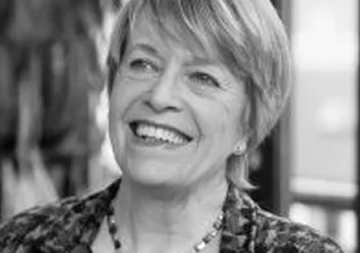Building a new social commons
January 17, 2019 | Anna Coote

We must build a shared understanding of what commons are. There are many interpretations, but I find these words of Ugo Mattei a useful starting point:
‘The commons are not concessions. They are resources that belong to the people as a matter of life necessity. Everybody has a right to an equal share of the commons and must be empowered by law to claim equal and direct access to it. Everybody has equal responsibility to the commons and shares a direct responsibility to transfer its wealth to future generations’.
What is distinctive about our vision of a new social commons?
- Forwards not backwards. We aim to reimagine and build on essential elements of the UK welfare system without being purely defensive. The process and content of building a new social commons are geared to the present and future, not the past.
- People in control. The idea of the social commons starts with the ambition of putting people in control, claiming what should be theirs by right, rather than simply receiving (or hoping to receive) public services and benefits.
- Promoting collective action. Our proposal gives priority to the collective ideal. This was embodied in the post-war settlement, but has weakened over time. We aim to strengthen our shared capacity for collective action to help and support each other.
- A common good, shared by all. The ‘social commons’ do not represent a safety net or a conditional privilege, but a common good in which everyone has a stake. The value rests on everyone sharing in the benefits, both directly when they need support, and indirectly because this helps to generate a flourishing society and prosperous economy.
- Shaped through democratic dialogue. People themselves will decide the purpose and content of the social commons: what it includes and why, and where resources should come from. They will do this through deliberative dialogue that includes local councillors and MPs, bringing together participatory and representative democracy.
- With the state, not instead of it. This is about transforming relations between people and the public realm. Public authorities, at national and local levels, have a crucial role to play in facilitating and supporting the social commons. We want to transform them, not side-step or replace them, so that they guarantee shared ownership and equal access, as well as setting standards and managing resources.
- Flexible and evolving. The social commons can embrace multiple forms of shared ownership and draw on a range of resources, from locally based voluntary action to national institutions such as the NHS. We envisage a dynamic process where people decide incrementally what they need, then issue declarations of intent, demonstrate what’s possible through practical experiment, identify what rights are required, and work out how best to develop and enforce them.
- Grounded in whole systems. This approach recognises that social, environmental and cultural resources are not separate but interdependent: they are – or should be – common goods, held in common, for the common good. They are subject to similar claims and expectations.
Why is it urgent now?
The case for claiming and building a social commons has never been more urgent. Far too many people feel dispossessed and betrayed by the established political order. That generates anger and desperation for change. Public institutions no longer inspire much confidence. The collective ideal – which for 60 years has been expressed in terms of public services, funded through taxation, ‘for each according to need’ – is so closely associated with the old order that it is in danger of being swept up in the general opprobrium. If people want to throw out the bathwater of established institutions, we must rescue the baby of shared risks, pooled resources, collective action and mutual aid. And we must make sure that ‘the baby’ can survive and thrive today and in future. This calls for a transformation of the ways in which social resources are defined, controlled, supported and secured.
Beyond this political imperative, there are four main reasons why it is urgent to build a new social commons. First, it is an expression of social solidarity and collective action. Secondly, it can support social justice and help to reduce inequalities. Thirdly, it can underpin the development of a secure and sustainable welfare system, which is capable of meeting the needs of future as well as present generations. Fourthly, it may serve to anchor progressive social policies against the shock of right-wing populism and the growing appetite for radical disruption.
Meeting needs
The central purpose of social protection or welfare systems is not to supply a productive workforce, but to ensure that people’s needs are met. This means everyone must have access to resources that are essential for survival and flourishing, for health, critical autonomy and participation in society. Care and meaningful relationships are just as important as land, water, air and energy.
Welfare states in the rich world are in crisis, people are dependent but distrustful. Austerity programmes have cut services and amenities drastically. Public policies are failing to prevent harm and adapt to change, which has led to rising demand for costly, curative services, widening inequalities and unmet needs. People feel increasingly powerless to influence decisions and actions that affect their daily lives. Finally, there are new campaigns for ‘basic income’ which threaten to replace collective services with cash hand-outs to individuals.
New politics
The commons are part of a new politics, which is based not on competition, consumerism and choice, but on caring for each other, pooling resources and sharing risks. Our new politics reasserts the collective ideal, seeks to shift control from markets and state towards people at local level, and values unpaid activities on which the formal economy depends. Our goals are best summed up as: social justice, environmental sustainability, more equal distribution of power.
In pursuit of these goals, people should have enforceable rights of access to resources that are essential to meet their basic needs. They should have power to determine how to meet their needs collectively and to design and deliver ways of meeting them. Paid and unpaid work should be understood and valued as mutually supportive. The role of the state must be to support this process, to ensure equal access, to guarantee standards and distribute resources. This calls for a new dynamic between top-down and bottom-up, between local and national politics.
How can this be achieved?
We can start to build commons by learning from existing practice, for example, from pioneering cities such as Barcelona, Ghent and Bologna, where municipal governments have made a commitment to support collaborative approaches to ownership and work in a variety of fields. Decisions about the nature and scope of the social commons are best shaped through a three-way dialogue: to bring together experimental wisdom, professional expertise and political negotiation. At the national level, we can envisage a declaration with accumulating force, whereby ‘soft’ law leads over time to enforceable measures. New models of shared ownership and control will be developed, with new transformative relationships between people, the commons and the public realm.
Unresolved questions
There are still many questions that have not been adequately addressed. For example, we shall have to determine – and reach broad agreement – on the following issues. What is included in the social commons and who decides on this? Who is eligible for access to the commons, citizens or residents? What is the best way to organize a three-way dialogue? How are legally enforceable rights to be made compatible with locally determined initiatives through which people are enabled to meet needs? How can we to transform public institutions so that they support the commons? And finally, which sectors, groups and organisations are likely to support the social commons? As the debate continues, more questions and challenges are bound to arise. But at least the debate has begun to find some resonance at a global level.
(This contribution is partially based on Coote, Anna, The New Social Commons. The People, the Commons and the Public Realm, New Economics Foundation, 2 May 2017)
*Anna Coote is Principal Fellow at the New Economics Foundation (NEF). A leading analyst, writer and advocate in the field of social policy, social justice, sustainable development, working time, public health policy, and for democratic dialogue, gender and equality. She was Commissioner for Health with the UK Sustainable Development Commission (2000-9). Her recent publications include Building a New Social Commons, (2017) Local Early Action: how to make it happen (2015), People, Planet Power: Towards a New Social Settlement (2015) and Time on our Side: why we all need a shorter working week (2013).



